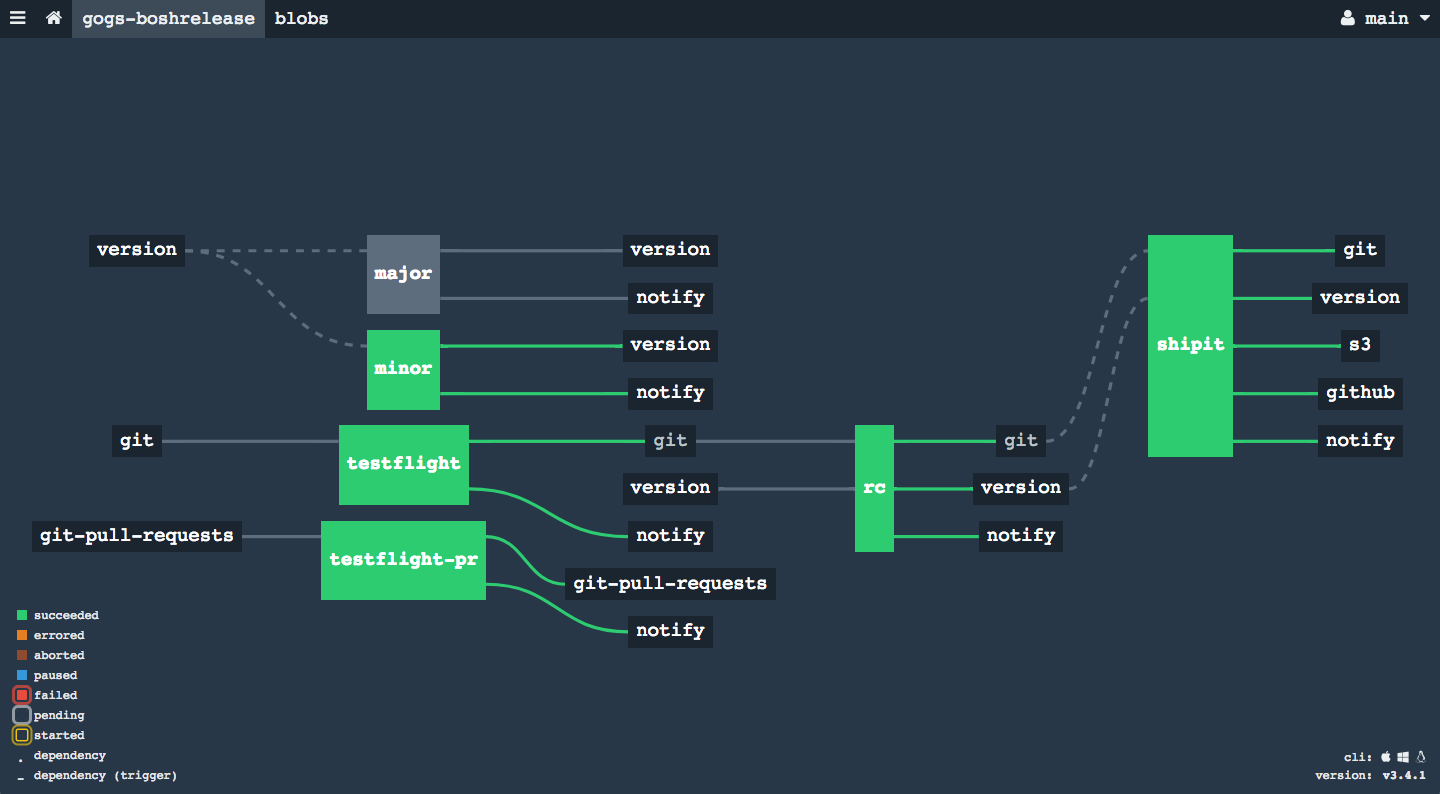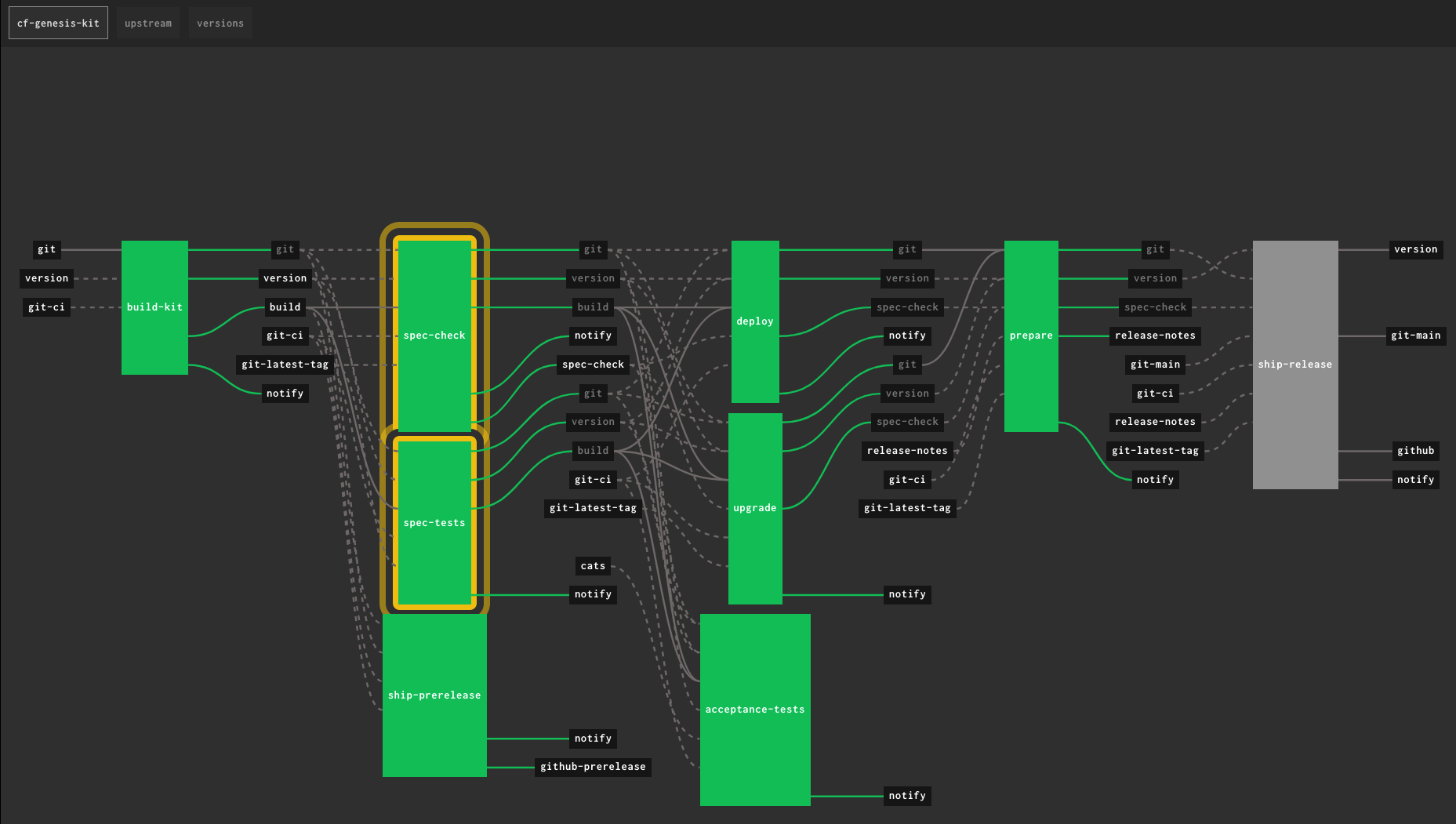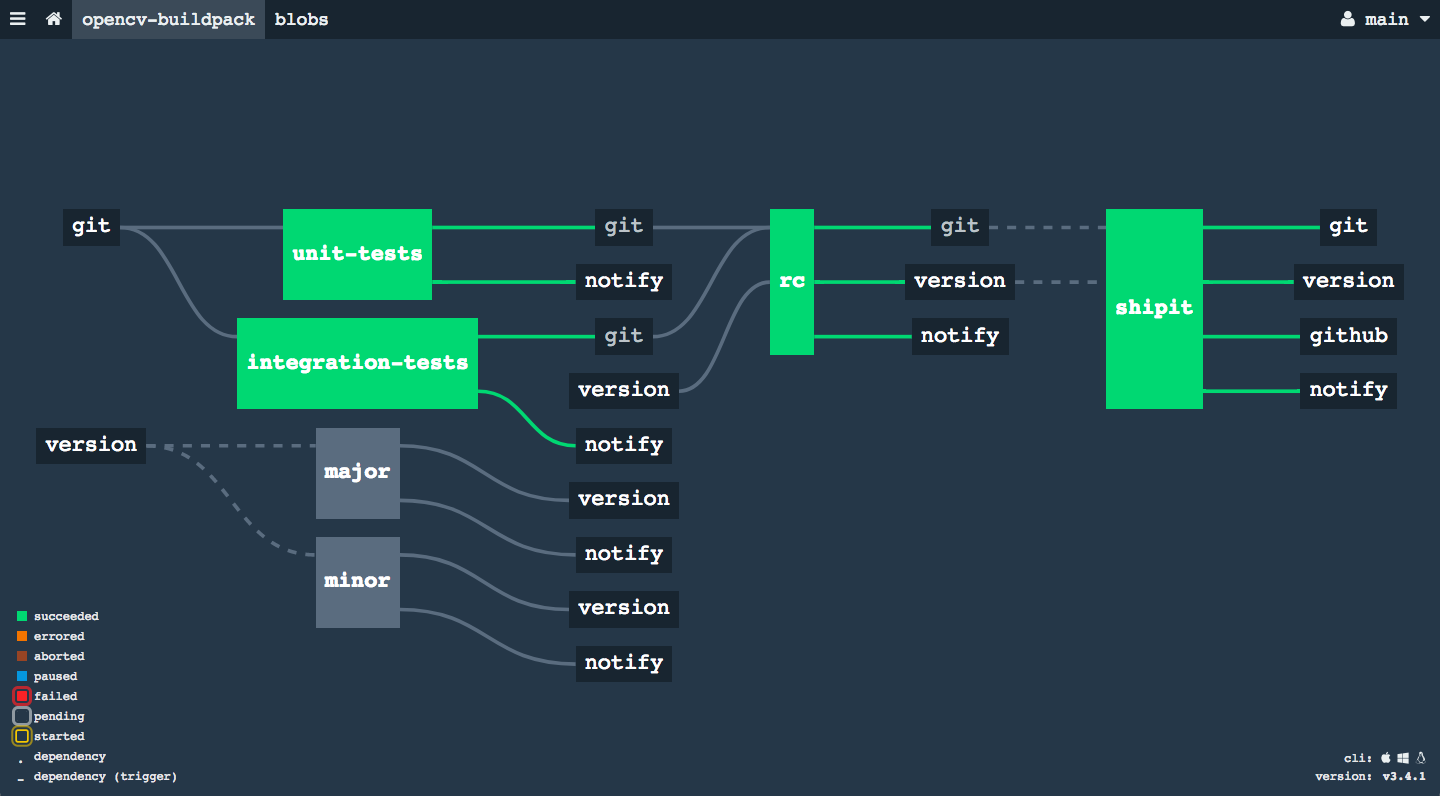This repository collects up all that tribal wisdom we've gained
from building Concourse Pipelines for various different purposes.
Each template provides a base ci/pipeline.yml that structures the
pipeline, ci/settings.yml to override any parameters defined by the template, a set of scripts (in ci/scripts/) that are referenced
from the pipeline, and a ci/repipe utility for putting all the
pieces together into a functioning Concourse pipeline.
This project was initially created by Stark & Wayne, and is now maintained by Gstack.
Setup is straightforward:
git clone https://github.com/cloudfoundry-community/pipeline-templates
cd pipeline-templates
./setup <template> ~/bosh/my-new-boshreleaseAlternatively, you can initialize the pipeline from inside the target repository:
cd code/my-buildpack
~/code/pipeline-templates/setup <template>The first argument to setup is the template you want to use. Currently available templates:
bashboshreleasegenesis-kitbuildpackcfpushdocker/basedocker/ext-testsgohelm
Don't let the name fool you! ./setup can also be used to update
an existing templated pipeline ci/ directory to pick up new
changes made to the templates.
Once you've set up your repository, you'll need to fill in your
ci/settings.yml file with any parameters the template required:
cd code/my-project
ci/repipe # Attempt to update the pipeline config,
# spitting out errors for missing parameters
vi ci/settings.yml # fill in the missing parameters
ci/repipe # Deploy the pipeline config!The ci/repipe script uses Spruce to merge ci/pipeline.yml and your bespoke ci/settings.yml.
On MacOS/Homebrew:
brew install cloudfoundry-community/cf/spruceOn Debian/Ubuntu:
wget -q -O - https://raw.githubusercontent.com/cloudfoundry-community/homebrew-cf/master/public.key | apt-key add -
echo "deb http://apt.community.cloudfoundry.org stable main" | tee /etc/apt/sources.list.d/cf-community.list
apt-get update
apt-get install spruceThe ci/repipe for genesis-kits also requires jq, which can be installed via
brew on MacOS or apt-get on Debian/Ubuntu.
For building Docker images, with tests. This template comes in
two flavors: docker/base (where the unit tests are inside the
Docker image) and docker/ext-tests, where the tests live outside
of the image.
Takes a Go software project repository, runs unit tests and
(when the manual shipit job is run) releases to Github.
Tries to create a BOSH release from the repository, upload it to a
hosted BOSH-lite for viability testing, and (when the manual
shipit job is run) releasing it to Github with a tarball
artifact, and also uploading that release tarball to S3.
See also the detailed pipeline documentation for more details.
Builds a pipeline to create a pipeline that builds a release candidate, runs it through spec tests and spec-check, then any deployment, upgrad and acceptance tests. Passing those, it prepares the release notes based on commit messages, and then can be manually released. It also includes a manual prerelease after the initial RC is built.
There is also provision for pulling upstream dependencies and bumping semantic version components.
Read the README.md file under genesis-kit for customization options. As written, it is based on the cf-genesis-kit.
Runs unit and integration tests on a Cloud Foundry buildpack, and can release it to Github.
Builds a docker image and uploads Helm chart to an S3 bucket
You will need to customize your pipeline with information about your CI, your Amazon AWS credentials + S3 bucket for storing assets + version file, your Slack account, etc.
You will create and maintain ci/settings.yml for this.
Try very very hard to not modify ci/pipeline.yml. Instead, use ./setup to update ci/pipeline.yml with new changes from this repo. If you do need to modify ci/pipeline.yml please feel welcome to submit PRs to this repo so that we can merge them and share them with everyone.
For those who use Vault to store their credentials, the spruce syntax
(( vault "path1" )) can fetch the secret values during ci/repipe. Using
this feature is not recommended though, because the secrets will leak as
clear-text in the Concourse (Postgres) database. Since Concourse CI has native
support for Vault, everyone should use that so that secrets are fetched
just-in-time, and have lower risk of leaking.
Here is an example ci/settings.yml from the eden CLI project (uses the go template):
---
meta:
name: eden
target: sw
url: https://ci.starkandwayne.com
initial_version: 0.5.0
go:
binary: eden
cmd_module: .
aws:
access_key: (( vault "secret/aws/starkandwayne-s3:access" ))
secret_key: (( vault "secret/aws/starkandwayne-s3:secret" ))
region_name: eu-central-1
slack:
webhook: (( vault "secret/pipelines/eden/slack:webhook" ))
channel: "#eden" # https://openservicebrokerapi.slack.com/messages/C6Y5A2N8Z/
username: starkandwayne-ci
icon: https://www.starkandwayne.com/assets/images/shield-blue-50x50.png
github:
owner: starkandwayne
repo: eden
access_token: (( vault "secret/pipelines/shared/github:access_token" ))
private_key: (( vault "secret/pipelines/shared/github:private_key" ))Bonus, we use https://github.com/starkandwayne/safe as our CLI to interact with Vault.
For example, to populate the (( vault "secret/pipelines/eden/slack:webhook" )) value in Vault:
safe set secret/pipelines/eden/slack webhook=https://hooks.slack.com/services/T2S1X7xxx/B6Y5A7xx/0nP7jxxx





